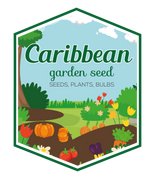Herb Container Garden
Container gardens for herbs are popular due to their convenience. Whether you have a large property or a small garden, being able to step outside and pick fresh herbs from a beautiful container garden is a convenient option. Plant maintenance is also easier with containers, and there are fewer issues with weeds and critters damaging your crops.
Grow any herb in a container. Ensure plants have similar requirements. Some need more water or light. With the right conditions, you'll have thriving plants and fresh herbs.
Planning Your Herb Container
You can grow as many types of herbs in one container as you want if they share the same sun, water, and soil preferences. For example, rosemary likes hot and dry conditions while parsley needs steady moisture. Therefore, they would not work well together in the same pot.
Also, don’t forget that herbs can serve as decorative elements in a container garden, adding texture and scent when mixed with annuals or perennials. Again, just be sure to pair them with plants that have similar needs, and make sure they won't choke out any other plants in the same container, as some herbs have vigorous growth herbs
Choosing a Container for Herbs
You can use almost anything for an herb container, as long as it has good drainage. Most herbs don’t have large root systems, so you can get away with relatively small containers.1 This is especially true of the herbs that don’t mind drying out between waterings. However, the smaller the container, the less soil there is. This means you have a smaller margin of error with too much or too little water.
Certain herbs flourish in self-watering containers due to their preference for consistent moisture levels. Varieties like chives, parsley, marjoram, and mint are ideal choices for cultivation in self-watering pots. Other herbs, including oregano, thyme, rosemary, and basil, prefer to dry out between watering, so they wouldn’t be good candidates for self-watering containers.
Planting and Caring for Herbs
Help your container herbs thrive with the right soil, sun exposure, and fertilizer. Use a high-quality potting mix that allows for good drainage. Harvesting Your Herbs
The rule of thumb for harvesting herbs is to snip and pinch back often. Consistent harvesting will encourage the plants to branch and fill out which, in turn, will increase your overall harvest. Always tailor your harvesting to the plant's growth pattern and avoid cutting more than one third of the plant during the growing season. For example, basil leaves should be harvested regularly, and the flower buds should be removed, but basil plants should not be cut back all the way.
The flowers and seeds of some herbs, such as chives and dill, are edible. The leaves of others including oregano and basil will lose flavor and become bitter if allowed to flower. Remember that once a plant flowers and goes to seed, the seasonal growth cycle for that plant will be complete and the plant will no longer put out new growth.
At the end of the growing season, you can bring many of your herb containers inside if you get lots of indoor sunlight. Some herb plants are easier than others to keep alive indoors during the winter, though it's worth a shot for all your container herbs.
Finally, if you've grown more herbs than you can harvest for yourself, consider giving them as gifts. You can do themed herb container gardens, such as a "pizza" garden or an herbes de Provence container garden. Combine herbs and other edible plants in a pretty basket, or just pick a handful of herbs to put in a nice vase for an herbal bouquet. Many herbs like oregano, sage, rosemary and dill also dry well and can be kept in tightly lidded containers out of direct sunlight for use in cooking all year long.

![[Seeds] - Caribbeangardenseed](http://caribbeangardenseed.com/cdn/shop/files/gift-card-gift-card-1_1024x1024_dfa857db-9150-4315-a362-7f0bb3fb9c47_60x28.png?v=1703978838)
Leave a comment